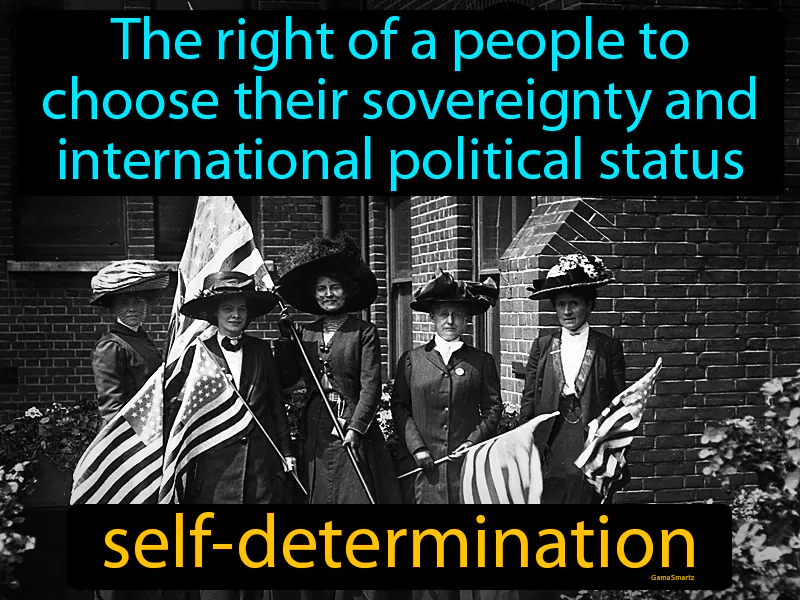Self-determination
Self-determination: Easy to understand
The concept of self-determination gained prominence after World War 1, as many nations sought independence from empires like Austria-Hungary and the Ottoman Empire. It was crucial because it responded to the problem of imperialism, where dominant countries controlled diverse ethnic groups without their consent. President Woodrow Wilson highlighted self-determination in his Fourteen Points, promoting the idea that people should have the right to form their own governments. Today, self-determination remains important as individuals and communities strive for autonomy and the ability to make decisions that affect their lives. For example, Indigenous communities worldwide use self-determination to reclaim rights to their land and culture, showing how the concept empowers groups to preserve their identity and make choices about their future.

Practice Version

Self-determination: The right of a people to choose their sovereignty and international political status. Self-determination. In history, self-determination is when a group decides its own government and future, often after being a colony or under foreign rule.